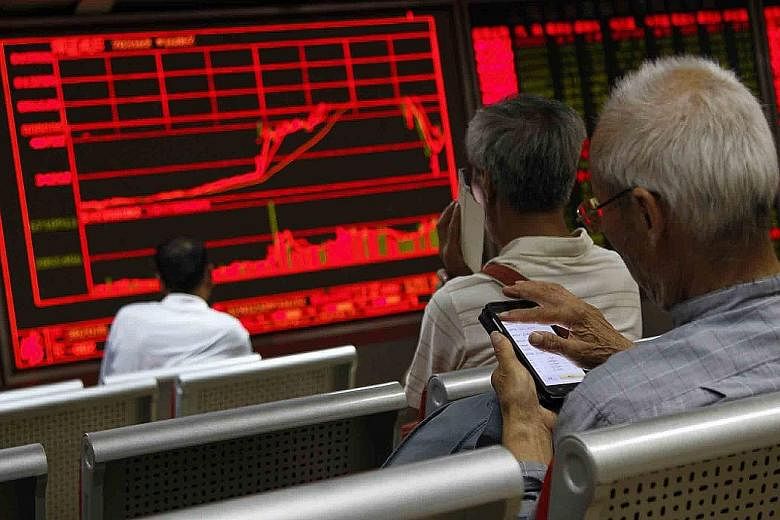Beijing's engineering of a Chinese share market bull run and its subsequent measures to stabilise the stock market rout are unconventional but not entirely novel, according to UOB private bank's chief investment officer.
Mr Neo Teng Hwee told The Straits Times in an interview last week: "This aspect of direct intervention into the equity market has happened before."
During the Asian financial crisis in 1998, the Hong Kong Monetary Authority spent an estimated HK$100 billion buying up blue-chip shares to stamp out hedge funds that had taken short positions against the Hang Seng.
The move restored confidence to the market.
And "Greenspan puts" were once a feature of the United States markets when the Federal Reserve insured prices by managing interest rates, said Mr Neo.
"So at certain crunch points you do see governments come in to arrest the market (when) it has gone into a self-reinforcing panic and you need to provide a sort of jolt to this dynamic," he added.
"But if you intervene too much, the risk is moral hazard. Everyone's buying because they know the government will underwrite the market.
"Is this the best use of public funds? I'm not so sure."
As the Shanghai bourse searched for a bottom after its mid-June peak, the Chinese authorities unleashed a slate of measures to stem the volatility.
They cut lending rates, cracked down on short-sellers, imposed trading halts and even purchased exchange-traded funds to support the market.
Mr Neo will not call the Chinese A-shares' frenzied spike and 30 per cent correction a "bubble", but he advises investors keen on China to focus on securities listed in Hong Kong or the US for now.
This is because novice investors dominate the Shanghai market, whereas the Hong Kong market also has a good presence of international and institutional investors.
Mr Neo said: "When markets are dominated by too many speculators, it's not so much about what the investment is truly worth but whether or not someone will take me out at a higher price - greater fool theory."
This also means that in a panicked sell-off when "all the onshore individuals are scared", Shanghai shares will suffer a lack of "value-oriented money" flowing in from overseas.
Hong Kong-listed A shares also trade at much cheaper valuations as the bourse has a larger concentration of state-owned enterprises and large, mature companies, Mr Neo pointed out.
He also likes Chinese banks, which trade at "outrageously low valuations" as investors seem overly concerned about competition from shadow banks, credit risk and interest rate liberalisation.
Mr Neo expects to see volatility prevail on the Chinese bourses since the markets are "young and prone to excesses". But there are other upsides - Beijing is due to cut interest rates yet again as growth remains "fragile" and inflation low, he said.


